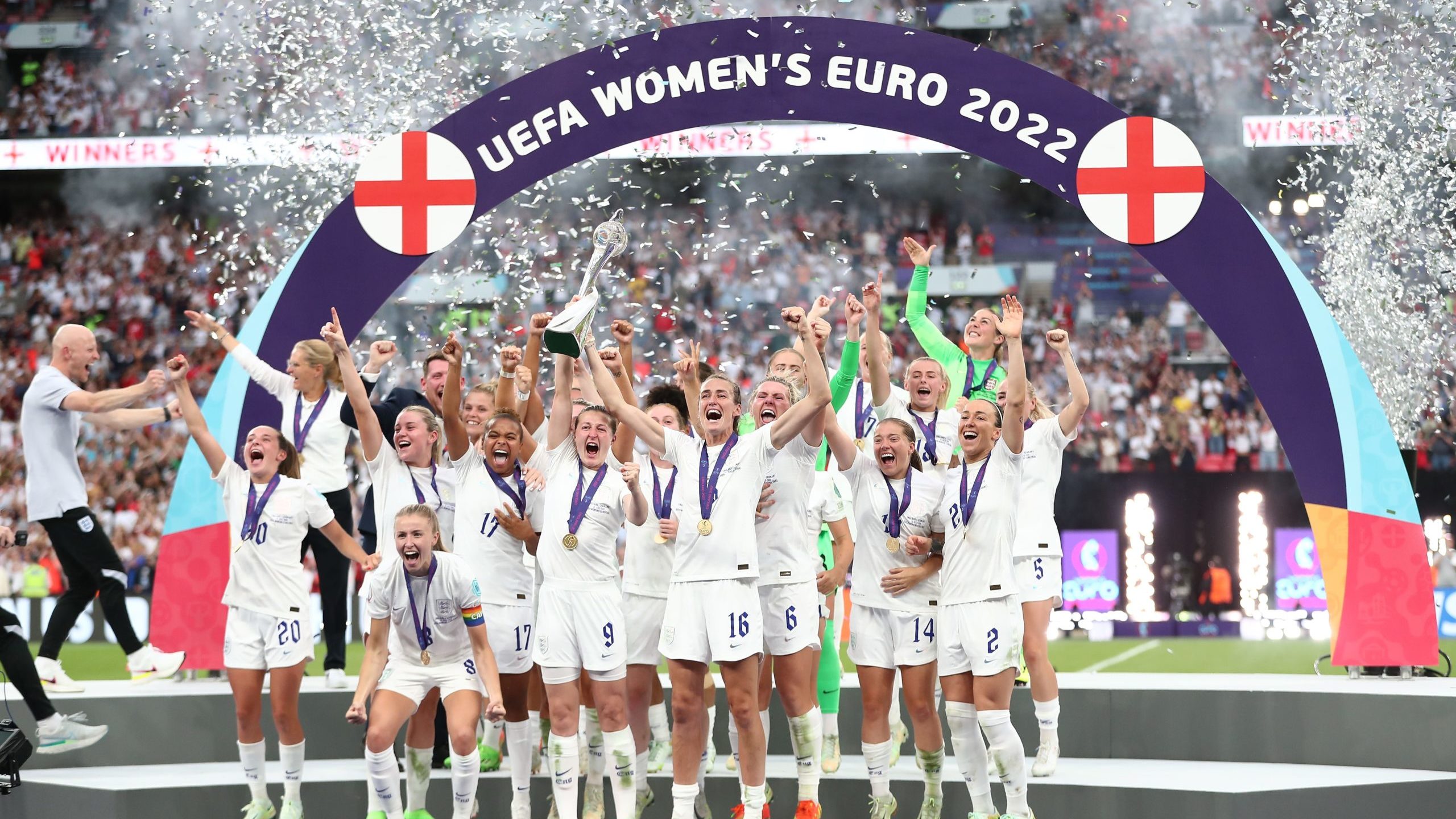England’s women have won the Euro 2022 football championship, bringing a major international trophy home for the first time since the men’s team won the World Cup in 1966, more than a lifetime ago for many of the fans who crowded into Wembley Stadium for the match. They beat Germany, English football’s bitterest rival by two goals to one, in a tense and hard-fought match that was not decided until the second period of extra time.
England’s women footballers have not just won the championship, though. The team has captured the public imagination. Attendance at the match was 87,192, the biggest crowd for a Euros football match for either men’s or women’s football. Newspapers are devoting multiple pages to women’s sports coverage and England’s key players are becoming well known.
And the games themselves are attracting a whole new set of fans. Watching women’s international football feels like – and is – a different world from the men’s version. Crowds at men’s football are ageing, but at women’s football, price, civility and increased safety means that around half the crowd can often be children.
I took my own football-playing 10-year-old granddaughter to see Germany beat France in the semi-final at Stadium MK in Milton Keynes last week. Women and girls outnumbered men and boys comfortably at that game – and booze was of less-than-secondary significance. Inclusivity, participation and diversity were the watchwords here, rather than partisanship and casual abuse of the opposition and its fans.
Infamously, the FA effectively banned women’s football in England in 1921 and it took more than 70 years for the governing body to embrace the women’s game. But the public profile of UK women’s sport has increased considerably. The live TV coverage in Britain of the FIFA Women’s World Cup in Canada in 2015 was the first time a UK national broadcaster, the BBC, had covered an international women’s sporting event on this scale.
When the women’s Euros were last held in the UK in 2005, few people seemed to care. Matches were mainly played in minor venues in the north of England and few were televised. Things have changed, and women’s team sport has been thriving on increased media exposure, particularly on free-to-air channels.









